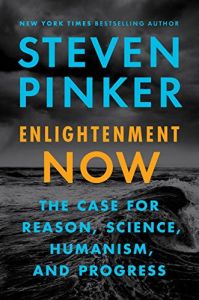
A review of
Enlightenment Now
The Case for Reason, Science, Humanism, and Progress
Steven Pinker
•
Viking
•
2018
The review below was first published in the getAbstract Journal on Feb 28, 2018.
We’ve reviewed this title for you as we currently cannot offer a summary. We hope this expert review provides valuable insights in the meantime.
We’ve reviewed this title for you as we currently cannot offer a summary. We hope this expert review provides valuable insights in the meantime.
Embrace the Enlightenment
by David Meyer
Public intellectual, Harvard professor and prolific bestseller Steven Pinker makes a thorough, data-backed, optimistic case for the gifts the Enlightenment brought humanity.







Comment on this review